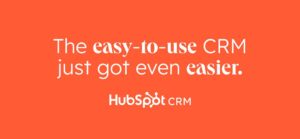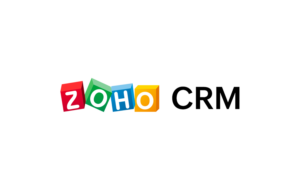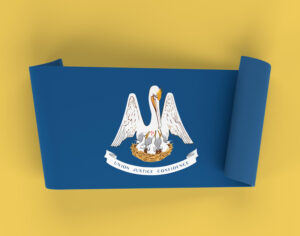Guidelines and Resources for Contracting Phase of Consulting
Sections of this Topic Include:
- Description
- Goals for This Contracting Phase
- How to Do the First Meeting With Your Client
- Guiding Principles for This First Meeting
- Questions to Pose to the Client
- Identify to Yourself, Who is the Direct Client Now?
- What Does the Client Consider to Be Success?
- Now, Assess if the Client is Ready for a Project
- If Client is Indeed Ready, Share Information About How You Work
- Learn More About Client’s Organization
- Guiding Principles for This First Meeting
- How to Do Consulting Proposals and Contracts
- Also See These Closely Related Topics
Strongly Recommended Pre-Reading
All About Consulting – Types, Skills and Approaches
Collaborative Consulting for Performance, Change and Learning
Description
| See a video about the contracting phase, including introducing yourself, client’s perceptions, identifying the direct client, evaluation preparation, learning client’s organization, ensuring client is ready, and writing a contract/agreement. From the Consultants Development Institute. |
Audiences for This Topic
This phase is useful for internal and external consultants, although the scope of how contracting is done often differs between the two. Externals often have a more comprehensive, written and formal agreement with clients. Internals, while also in consulting roles, often have more focused and less comprehensive agreements, sometimes implied rather than written.
Critical Importance of This Phase
This phase is usually where the relationship between you and your client starts, whether you are an external or internal consultant. Experts assert that this phase is one of the most – if not the most – important phases in the organizational change process. Activities during this stage form the foundation for a successful consulting project. The quality of how this phase is carried out usually is a strong indicator of how the project will go.
Occasionally this phase needs to be repeated, for example, if a new problem arises in your client’s organization and, therefore, a new project design and plan are needed. On other occasions, you and your client might decide to do a separate contract for certain phases of an overall project. For example, you might contract to finish an assessment and then contract to guide your client through implementing the recommendations from that assessment.
(Note that the information in this section refers to “your client,” even though, in the early activities of this phase, your potential client and you might not have formalized an agreement to work together on the project yet.)
Here are some other perspectives on the contracting phase:
- IOD – How Contracting for Results Works in Organization Development
- Journey of a Consultant 2 of 7 – Entering and Contracting
Goals of This Contracting Phase
| See a video about knowing your consulting style, biases, emotional intelligence, “lens” on organizations, and how you share feedback and conflict. This is very useful to know about yourself in first meetings with your client. From the Consultants Development Institute. |
Goals of this phase include the following and in the following general sequence:
- Exchange introductions, including information about how each of you prefers to work in a project, and about your values and style.
- Clarify who the official client is. Also identify who direct and indirect clients might be.
- Get a description of your client’s need for a project (the presenting priority).
- Scope the project, identifying the major problem to be solved and/or its preliminary goals, when the project should start and stop, and to whom you need access in the project.
- Understand how the project can be coordinated and administered, including how project decisions can be made and how communications can occur.
- Get some sense of your client’s and your own readiness to undertake the project.
- Decide whether both of you want to work together now on a project or if any additional activities are needed, such as another meeting, follow-up proposal or references check.
- Gain agreement on the overall approach to the project, including a collaborative approach to further discovery, action planning, implementation and evaluation.
- Arrange a formal agreement, for example, a letter of agreement or contract, and decide what terms should be included in the documents.
- Obtain information for you to understand more about your client’s organization.
How to Do the First Meeting With Your Client
| See a video about interpersonal skills to build trust and collaboration, including listening, authenticity, sharing feedback, working with diversity, managing interpersonal conflict and managing resistance. From the Consultants Development Institute. |
At some point in the project, you will have your first face-to-face meeting with your client, usually scheduled during an initial telephone call. The following guidelines will help ensure that your first meeting is highly productive. They will also be useful during the initial telephone call.
Guiding Principles for This First Meeting
| See a video about planning and managing meetings, and ensuring maximum participation and effective decisions. From the Consultants Development Institute. |
Clients often hire consultants based on how well the client believes that the consultant actually listened and understood their situation. Therefore, focus especially on understanding the client’s situation now, not on “selling” yourself.
Use your interpersonal skills to hear their story. The more effective your
skills are in these areas, the more likely that you and your client will have a firm foundation from which to share complete and accurate information, thereby resulting in a more successful project.
Focus on hearing about – not solving – the client’s problem. It is important not to start giving advice about how to solve the problem now. Even if you are convinced that you know how, you still have not conducted sufficient discovery to be sure you clearly understand the situation. Also, you do not want to prematurely commit yourself to a solution with your client that might soon change after you have done discovery.
- How do you approach the first meeting with a potential client?
- How to completely rock your first client meeting
Questions to Pose to the Client
Ask useful questions to clarify your understanding now. Ask, for example:
- Why do they want to address the situation now?
- What did they see or hear that brought them to that conclusion?
- What will happen if nothing is done?
- What has been the effect of the problem on rest of the organization?
- What have they done so far about the situation?
- What happened as a result of their efforts so far?
- How did they conclude that they needed a consultant now?
- Respectfully and tactfully ask, what might be their role in causing the problem?
Identify to Yourself, Who is the Direct/Current Client Now?
It is important to know who the official decision maker is regarding whether to hire you or not (the official client). However, it is as important to recognize who seems to know the most about the situation now (the direct or current client). That will indicate to whom to direct your types of questions. That kind of interpersonal acuity will get you the most useful information. It also will convey to the direct/current client that you are sensitive to the different roles that each of them has. This kind of sensibility will be very important during the upcoming implementation phase when different people will be your direct/current client — they will have the most useful information for you then and often will have the most influence in helping the project.
What Does the Client Consider to Be Success?
There are many different definitions of success in a consulting project. In addition to solving the problem, it might be as important — or more — to not exceed any deadlines or the budget for the project. It might be to not break any norms in their culture. Ask them about these aspects.
Ask them to list two to three things that are needed in their organization for the project to achieve that success. Mention that these are often considered to be critical success factors.
Now, Assess if the Client is Ready for a Project
Ultimately, this decision is up to you as the consultant, although the client might have reservations now after having answered your questions. Consider, have they allocated sufficient funds for the project? What obstacles might they see in participating in it? Have they used a consultant before, and if so, how did that work out? What was their role? What did they learn? What might they have done differently? Are there any people or activities that are off limits for access during the project? If so, then that could be a warning about the extent of their cooperation and involvement in the project. Are there people who might be uncomfortable with this project? What is the evidence that top management supports the project?
If you believe that the client is not ready, then share your opinions now and explain your reasoning. That would be one of your greatest gifts to them. They are much more likely to be ready for a project later on – and they will greatly respect you for being so honest with them.
If Client is Indeed Ready, Share Information About How You Work
| See a video about principles for effective and ethical consulting, and defining “success” in a consulting project. From the Consultants Development Institute. |
Mention your personal values, mission in your work and primary goals in how you work. Highlight your expertise and explain your approach to consulting. Explain the collaborative approach to consulting, its benefits and the roles of the consultant and client. Mention any boundaries in your work, for example, that you offer guidance, materials and support, but it is up to the client to implement your help. If the client asks how you will solve their problem, tell them that you want to give it the thought that it deserves and that you will respond with a proposal. Mention that your fees will be specified in that document.
Learn More About Client’s Organization
Ask for information that you otherwise could not get from the organization’s literature, for example:
- How do you like to make decisions and solve problems?
- What is unique about the culture of your organization?
- How can a consultant best work in that culture?
- How do you prefer to communicate? In-person? In writing?
- What is your approach to situations, for example, do you refer to “problems” or “opportunities”?
- Do you talk most about the “business” side of the organization or the “people” side?
- What do you know about change management? How would you like to learn?
- What is the personality of your meetings?
How to Do Consulting Proposals and Contracts
How to Do Proposals
It is very useful to provide a proposal of some kind, even if they do not ask for one. The activity of developing a proposal ensures that you give careful thought to the desired outcomes, tangible outputs, kinds of services and deliverables, roles and timing for the project.
- All About Business/Consulting Proposals
- How to Write a Proposal: The Last Guide You’ll Ever Need
- Guidelines for Writing Project Proposals
- Anatomy of a proposal
- How to Write a Proposal As a Consultant
How to Do Contracts
If there is indeed a match between you and the client, and you agree to work together, then you will always want to formalize an agreement. Ask the client if they have a preference for the means to do that. Share how you formalize agreements, as well. The information in the following links is not to be understood as legal advice.
- Protect Yourself: How to Structure Your Consulting Contracts
- Sample Contract for Consulting Services
- How to structure a consulting contract even if client admits deliverables or outcomes may change
- As a Consultant, Know When You’re Giving Away Too Much
- Sample Agreement for Services (much of what goes in a proposal is also in the agreement)
- Benefits of Developing a Written Contract
- Sample Consulting Agreement
- Sample Contract for Consulting Services
- Independent Contractor Agreement for Consultant (for IC)
Also consider
Business Contracts
Also See These Closely Related Topics
- Guidelines and Resources for Discovery Phase of Consulting
- Guidelines and Resources for Action Planning Phase of Consulting
- Guidelines and Resources for Implementation Phase of Consulting
- Guidelines and Resources for Project Evaluation Phase of Consulting
- Guidelines and Resources for Termination Phase of Consulting
- Overview of the Field of Organization Development
- Guidelines, Methods and Resources for Organizational Change Agents
- Competencies and Resources for Organizational Change Agents
Additional Library Resources in the Category of Organizational
Change and Development
 Sections of this topic
Sections of this topic















